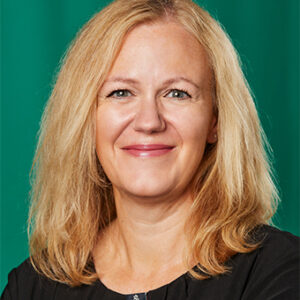Press Release
09/03/2024
Petra Olschowski, Minister of Science, Research and Arts of Baden-Württemberg, Informs Herself About Pioneering Research on Polarization and Disinformation at the FZI
The FZI provides insights into current research on polarization and disinformation
Research focus: Digital Democracy and Participation
On September 3, 2024, the Minister of Science, Research and Arts, Petra Olschowski, visited the FZI Research Center for Information Technology in Karlsruhe. She informed herself about current research findings and ongoing projects exploring polarization and disinformation.
House of Participation – innovative research environment
The House of Participation (HoP) is a competence center that promotes cooperation between the public, politics, science, and development to shape digital democracy actively. It researches and develops digital participation processes and platforms, combats disinformation and social division, and brings decision-makers from various sectors into dialog.
DeFaktS – uncovering disinformation campaigns
VIRTUS – citizen participation in urban planning via VR
SOSEC – long-term study on society in times of crisis
Large Language Media Manipulator – biased news per click
About the FZI
The FZI Research Center for Information Technology, with headquarters in Karlsruhe and a branch office in Berlin, is a non-profit institution for information technology application research and technology transfer. It delivers the latest scientific findings in information technology to companies and public institutions and qualifies individuals for academic and business careers or the leap into self-employment. Supervised by professors from various faculties, the research groups at the FZI develop interdisciplinary concepts, software, hardware and system solutions for their clients and implement the solutions found as prototypes. The FZI House of Living Labs provides a unique research environment for application research. The FZI is an innovation partner of the Karlsruhe Institute of Technology (KIT) and strategic partner of the German Informatics Society (GI).
Download press release (pdf):
Download media: Please click to download.
Further links:

